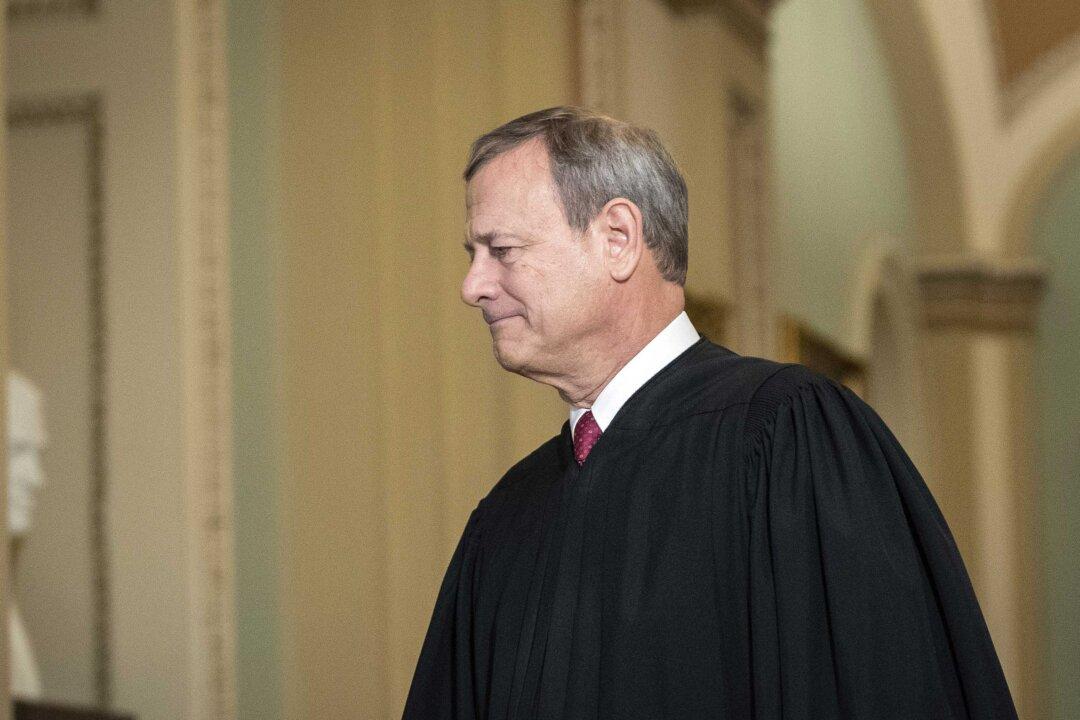Supreme Court Chief Justice John Roberts is abdicating his usual role of overseeing presidential impeachment trials, Senate Majority Leader Chuck Schumer (D-N.Y.) said late Monday.
“The Constitution says the chief justice presides for a sitting president. So it was up to John Roberts whether he wanted to preside with a president who is no longer sitting, Trump, and he doesn’t want to do it,” Schumer said during an appearance on MSNBC.





